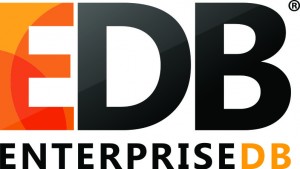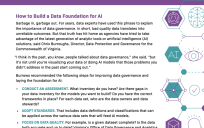Proprietary database products pose substantial risk to government agencies, especially as data moves to the cloud. To accelerate innovation and achieve modern enterprise application success, they need the agility to manage data seamlessly, both on premises and in the cloud.
These agencies can benefit from an open source approach that helps them avoid hurdles such as vendor-lock, rising costs and incompatible security methodologies. An open source relational database management system (RDBMS) provides the speed, scalability and flexibility needed to manage data more efficiently and cost-effectively, while upholding data security.
Among open source RDBMS, Postgres is the gold standard. Postgres expands on the SQL language, with features designed to maintain and scale modern mission-critical applications. As such, the majority of growth in the platform comes from the migration and modernization of such apps.
“People come to Postgres for the cost, but stay for the innovation,” said Chris Sortzi, Vice President of Public Sector at EDB, which provides enterprise-class software and services that enable businesses and governments to harness the full power of Postgres. “Postgres is a core driver of digital transformation, built for enterprises and government agencies looking to scale.”
A Universal Platform
Postgres is ideal for government agencies looking to shift to next-gen operating models, compete and stay relevant. With its constantly evolving community, Postgres enables innovation and digital transformation through ready access to emerging tools, deep knowledge and powerful strategies at every turn.
It’s a truly open project, and its open source licensing makes the RDBMS easy to deploy and modify. As an established solution, it boasts a complete stored procedure language, along with a wide range of extensions and options. This makes it easier for developers and database administrators to learn the ropes and hit the ground running.
And because the solution seamlessly integrates with existing data sources, agencies aren’t pressured to abandon legacy database investments or limit the tools they can use.
An open source solution “can act as sort of a universal data platform,” said Rick Hill, EDB Chief Architect. For agencies with multiple data sources and diverse applications, “open source solutions are able to talk to all these other technologies,” Hill said.
Find the Right Partner
It’s important to team with a database specialist that can support a seamless transition to the open source environment. Deep expertise is vital, said Hill.
“You can’t just wake up one day and say, ‘I want to move on to Postgres.’ You need to really look at the mechanics, what tools a solution offers,” he said. “You want a partner who will support you through that transition.”
EDB Postgres Advanced Server gives IT teams the ability to deploy anywhere — on premises, in the cloud or in multi-platform environments. It empowers agencies to migrate database and client applications faster with fewer rewrite problems.
This article appears in our guide, “Agency of the Future: How New Possibilities are Emerging in the Present.” To read more about how agencies are anticipating future needs, download it here.






Leave a Reply
You must be logged in to post a comment.